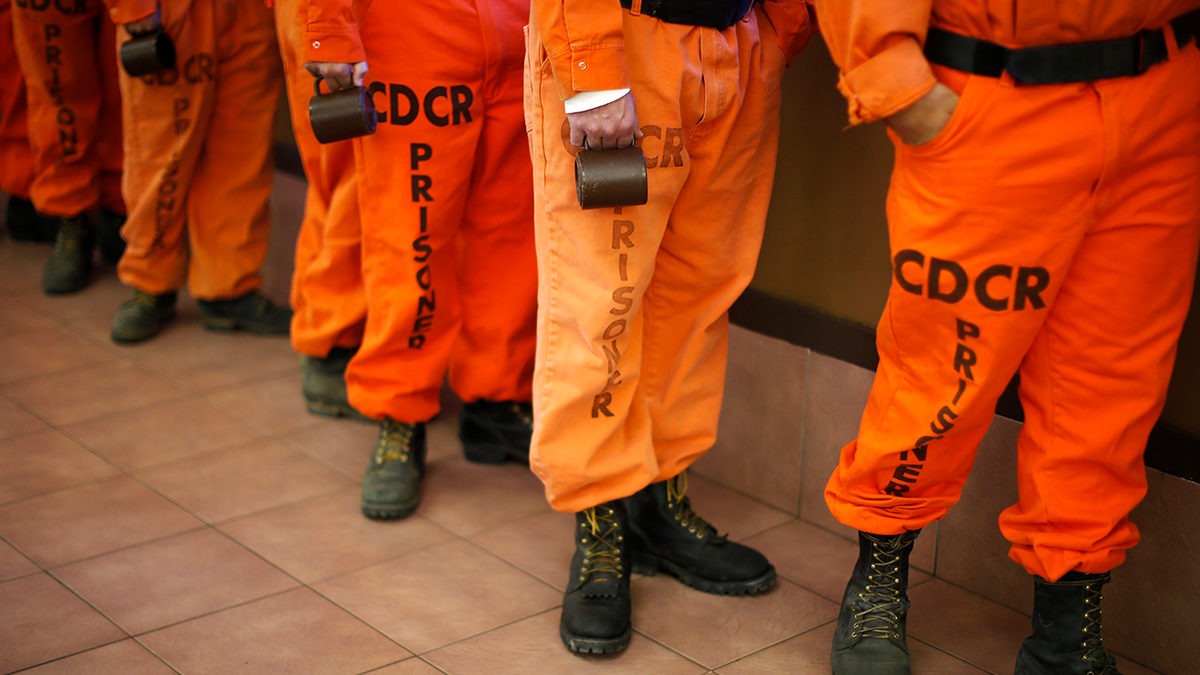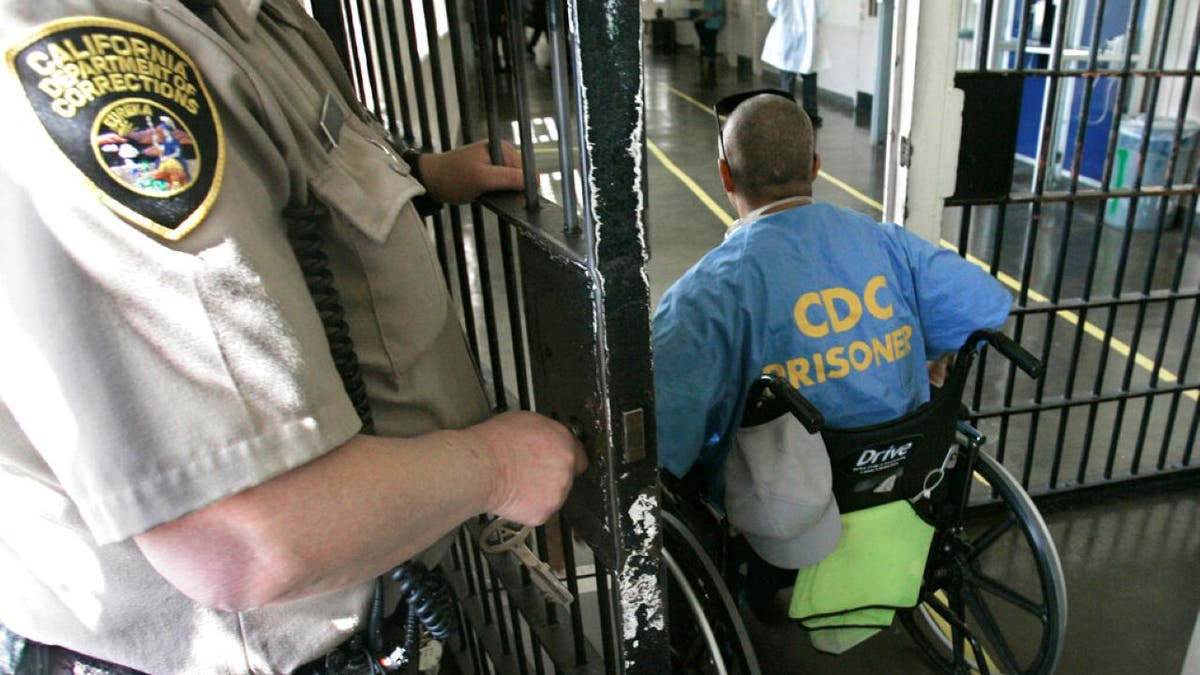House votes to remove Ilhan Omar from Foreign Affairs Committee
‘Outnumbered’ co-hosts react to the House voting to remove Rep. Ilhan Omar, D-Minn., from the Foreign Affairs Committee.
Prison inmates in Massachusetts may be able to cut their sentences by up to a year for donating bone marrow or organs, thanks to a new bill.
Bill HD. 3822 proposed by State Reps. Carlos Gonzalez, D, and Judith Garcia, D, requires the state commissioner for the Department of Corrections establish a bone marrow and organ donation program for incarcerated individuals.
The bill goes on to say that eligible inmates could earn between 60 days to one year off their sentence if they donate.
State Rep. Gonzalez said he hoped the bill would close racial disparities for Black and Latinos.
"Broadening the pool of potential donors is an effective way to increase the likelihood of Black and Latino family members and friends receiving life-saving treatment," the Miami Herald quoted the Democrat as saying.

Prison inmates wearing firefighting boots line up for breakfast at Oak Glen Conservation Fire Camp #35 in Yucaipa, California November 6, 2014.REUTERS/Lucy Nicholson (Reuters/Lucy Nicholson)
DC CRIME ENGULFS LOCAL NEWS AFTER CITY COUNCIL VOTED TO LOWER SENTENCES FOR CRIMINAL CONDUCT
Sponsor Judith Garcia also defended the bill on Twitter as a "voluntary" program that would "restore bodily autonomy" to incarcerated individuals, whom she said currently had no way to donate bone marrow or organs even to family members.
Rep. Garcia said in a statement that "addressing health inequities" of "Black and brown communities" was the legislation's goal.
"The vicious cycle of unjust incarceration and over-policing of Black and Brown communities has negative ramifications across all aspects of life–contributing to health inequities, socioeconomic disparities, and generational trauma. A lesser-known yet deeply disturbing impact of this system is its interference in the organ and bone marrow donation process. Environmental factors put BIPOC communities at a higher risk for health conditions that might require organ donation, and discriminatory incarceration rates eliminate many likely donor matches from the pool," she wrote. "This reality is felt viscerally: African Americans spend an average of 1,335 days on the kidney transplant waitlist compared to an average of 734 days for whites. High incarceration rates mean depriving non-incarcerated family members of life-saving treatment and depriving incarcerated individuals of the opportunity to save a loved one’s life."
However, progressives lit up her proposal in the replies.
"This bill will end up being coercive & predatory to a group without autonomy. A bill that guarantees their right to and path to donate if they wish, bribe-free, and provides quality healthcare for procedure and recovery would be in better faith," one user responded.
"HD 3822 is terrifying. It assumes people who are incarcerated retain full bodily autonomy and access to medical care. This is not "restoring bodily autonomy." It’s taking advantage of those incarcerated in our state," another wrote.
Several others blasted the bill as "disgusting" and "predatory" to prisoners.

FILE - A wheelchair-bound inmate wheels himself through a checkpoint at the California Medical Facility in Vacaville, Calif., on April 9, 2008. A prominent California medical school has apologized for conducting unethical experimental medical treatments on 2,600 incarcerated men in the 1960s and 1970s. (AP Photo/Rich Pedroncelli, File) ( (AP Photo/Rich Pedroncelli, File))
NEW YORK CITY OVERALL CRIME INCREASES 31% WHILE INCARCERATION CONSERVATION RATE STOOPS TO 18%
A prison abolitionist agreed, telling Boston.com the bill was "unethical and depraved."
"They’re a marginalized group in society, highly stigmatized and extremely vulnerable. So to incentivize the selling of your body parts in exchange for the most precious commodity in the world — which is time on this earth, and your freedom — was just so appalling," Michael Cox, executive director for Black and Pink Massachusetts told the outlet.
The bill clarifies costs will be covered by "the benefiting institutions of the program and their affiliates" and no payments or commissions will be made to the Department of Corrections "for bone marrow donated by incarcerated individuals."
It's questionable whether the bill would comply with existing laws. For instance, Section 301 of The National Organ Transplant Act prohibits the exchange of organs for transplantation for "valuable consideration."
Fox News Digital contacted the four Democrat sponsor and co-sponsors of the proposed bill for comment but did not receive a response.





















